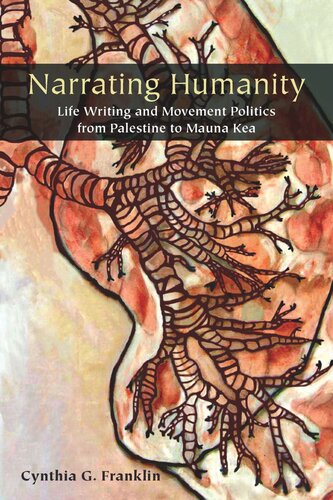

Most ebook files are in PDF format, so you can easily read them using various software such as Foxit Reader or directly on the Google Chrome browser.
Some ebook files are released by publishers in other formats such as .awz, .mobi, .epub, .fb2, etc. You may need to install specific software to read these formats on mobile/PC, such as Calibre.
Please read the tutorial at this link: https://ebookbell.com/faq
We offer FREE conversion to the popular formats you request; however, this may take some time. Therefore, right after payment, please email us, and we will try to provide the service as quickly as possible.
For some exceptional file formats or broken links (if any), please refrain from opening any disputes. Instead, email us first, and we will try to assist within a maximum of 6 hours.
EbookBell Team

0.0
0 reviewsHegemonic narratives about who and what counts as human determine who lives and dies—who has the right to breathe freely and fully. At the same time, in the face of crushing state violence, humans rise, and breathe life into new and resurgent stories of human being, becoming, and belonging.
In Narrating Humanity, Cynthia G. Franklin makes a critical intervention into practices of life writing and contemporary crises in the U.S. about who counts as human. To enable this intervention, she proposes a powerful new analytical language centered on “narrative humanity,” “narrated humanity,” and “grounded narrative humanity,” and foregrounds concepts of the human that emerge from movement politics. While stories of “narrative humanity” propagate the status quo, Franklin argues, those of “narrated humanity” and “grounded narrative humanity” are ones that articulate ways of being human necessary for not only surviving, but thriving during a time of accelerating crises brought on by the intersecting effects of racial capitalism, imperialism, heteropatriarchy, and climate change.
Through chapters focused on Hurricane Katrina, Black Lives Matter, the Palestinian-led Boycott, Divestment and Sanctions movement, and the Native Hawaiian movement to protect Mauna a Wākea, Franklin reveals how life writing can be mobilized to do more than perpetuate dominant forms of dehumanization that underwrite violence. She contends that life narratives can help materialize ways of being human inspired by these contemporary political movements that are based on queer kinship, inter/national solidarity, abolitionist care, and decolonial connectivity among humans, more-than-humans, land, and waters. Engaging writers, artists and activists who inspire radical forms of relationality, she comes to write side-by-side with them in her own acts of narrated humanity by refusing the boundaries between autobiography, community-based activism, and literary and cultural criticism.
This timely American Studies book examines the intersections of activism, scholarship, literature, and culture.